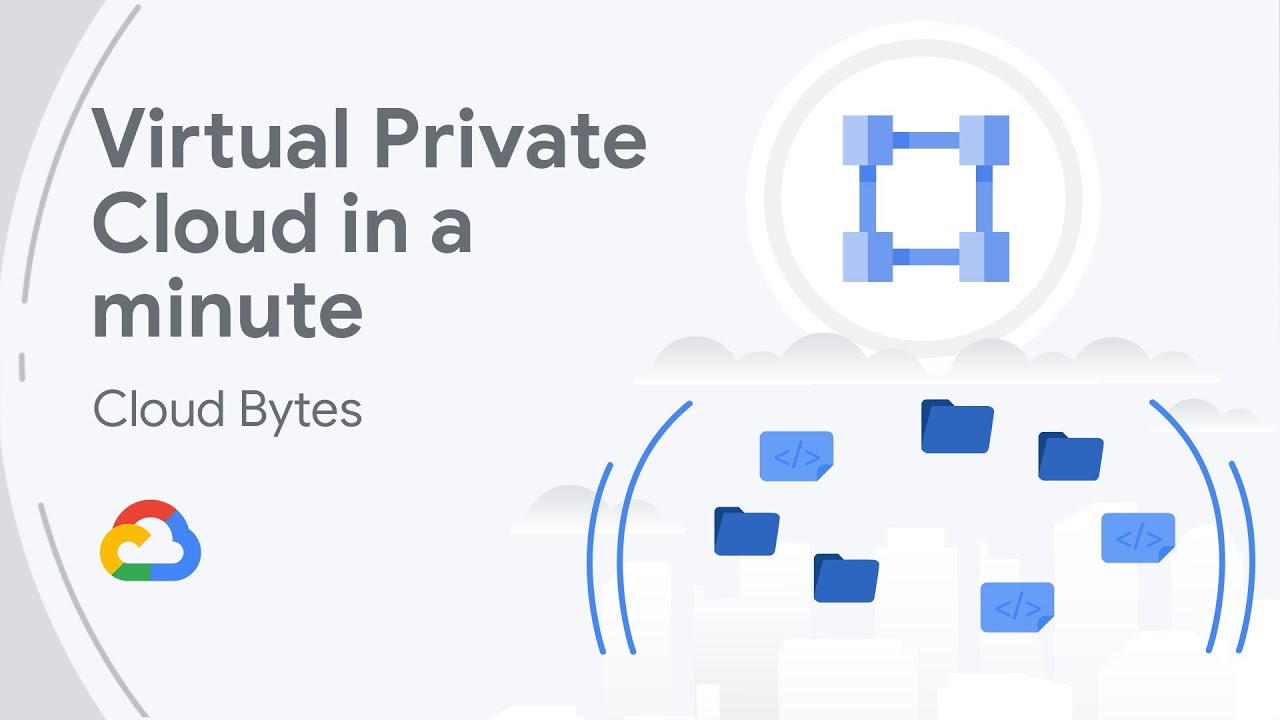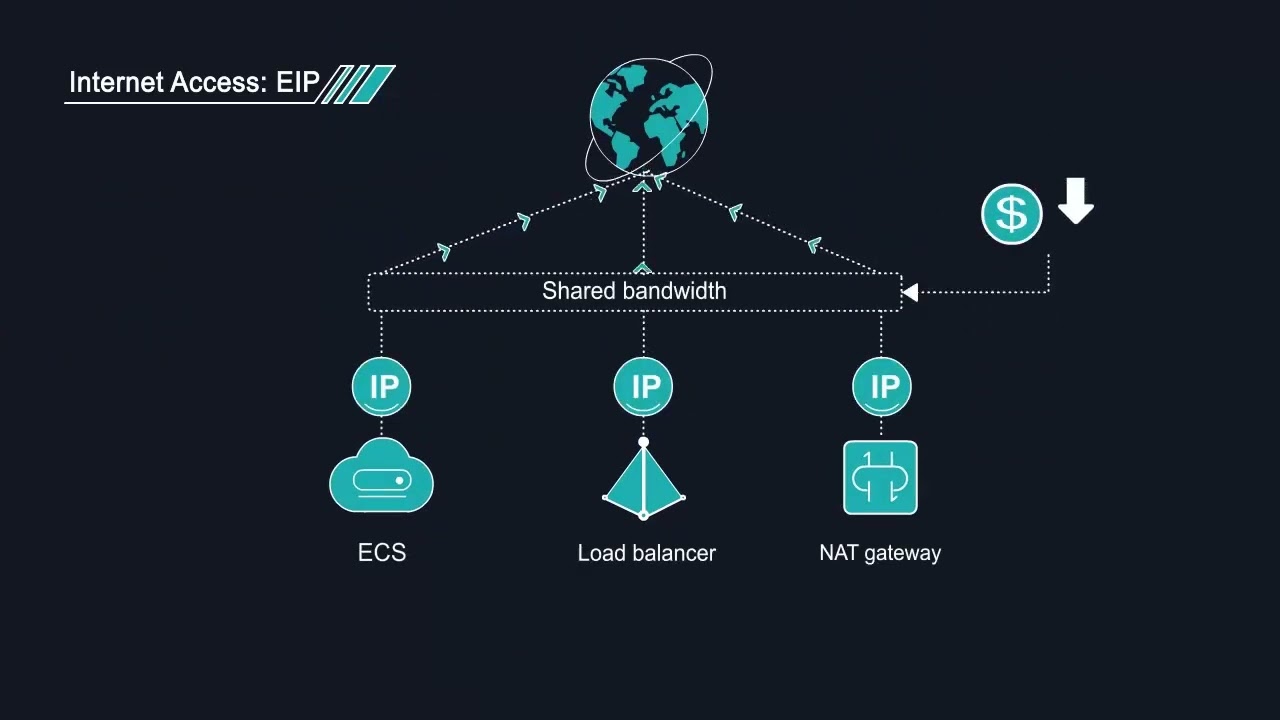Cloud security is a big concern when running codes and storing private data. A virtual private cloud might be the solution.
This article will discuss a virtual private cloud and how it works. We will discuss the benefits and features of a virtual private cloud. Finally, we will discuss the ten best virtual private clouds.
What is a Virtual Private Cloud (VPC)?

A virtual private cloud is an isolated private cloud hosted within a public cloud. You can securely execute code within a VPC. Moreover, you can store confidential data and host websites. The private clouds can be hosted remotely using some public cloud providers.
How does VPC work?
VPC serves customers interested in getting advantages of the cloud; however, these customers have some specific concerns. For example, they want high security, privacy, and better control over data.
To satisfy the customer requirements, the providers of VPC try to manage infrastructure. The infrastructure has:
- reserved cloud storage
- virtual networks
- dedicated cloud servers
- private IP addresses
To achieve these, the vendors use specific security policies, including tunneling, encryption, and VAN (virtual area network) for each customer. Moreover, the provider also adds access control policies and subnets.
The essential requirement for VPC is isolation; therefore, it is better to understand the isolated network better.
Isolated Network
A local network environment has zero connection to other networks. The system doesn’t allow unauthorized access to stop exploitation by intruders, preventing any malfunctioning. The system has well-defined physical characteristics to achieve authorized access to the system.
The system has high-security definitions. The system grants only trusted access. The isolated networks even restrict the installation of untrusted 3rd party software. Furthermore, for the storage network, the system has a cluster subnet.
Let’s take a quick overview of the transit gateway before advancing to the technicalities of our actual topic.
Transit Gateway
A transit gateway provides connectivity between your VPC and the physical network. The global expansion of cloud infrastructure requires connections of transit gateways. The transit gateways connection uses AWS global infrastructure, where data remains safe over the public network because data encryption is automatic.
Having an idea about isolated network and transit gateway, let’s resume the topic from isolated VPC configuration.
Isolated Virtual Private Cloud Configuration
It is possible to configure the transit gateway using multiple isolated routers. This solution is like having various gateways, where each router has only one table. The propagation remains within a router table for each attachment.
This way, the solution is more flexible, where modification is possible for each router and attachment. The attached entities can’t receive traffic from the entity connected with another router.
The isolation provides much better control over data by separating the cloud at the network layer. Thus, it stops the mixing of data from different networks.
How to Isolate a Virtual Private Cloud in a Public Cloud?

There are different ways to isolate resources among the various resources in the public cloud:
Subnets
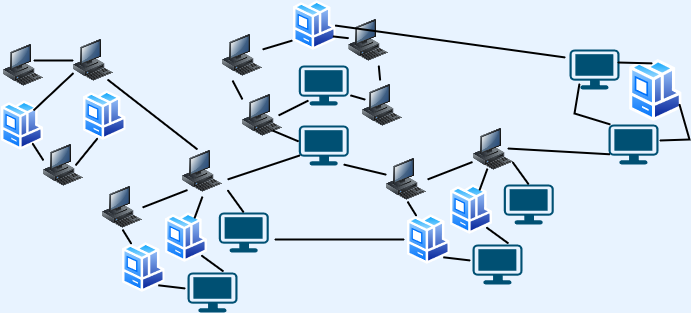
Subnetting can divide networks into public and private. A group of IP addresses is accessible to specific customers, whereas the remaining IP addresses are accessible to everyone.
VPN
A virtual private network creation requires encryption. A VPN uses a public network for transportation. However, it remains hidden from others.
VLAN
Like the subnet, VLAN divides networks into public and private partitions. However, in VLAN, we use the second and third layers of the OSI model.
VPC customers have exclusive access to specific subnets and VLAN. Therefore, they have dedicated resources that are not accessible to ordinary customers within the public cloud. The encryption in the VPN keeps the data traffic of VPC customers hidden within the public cloud users.
Benefits of Virtual Private Cloud
There are four main advantages of using a VPC instead of a private cloud:
- Better scalability: VPC is hosted on top of a public cloud; therefore, adding more resources whenever required is straightforward.
- Increased performance: The statistics show that the applications running on the public cloud have higher performance.
- Better security: Large enterprises can afford high-security solutions; however, for small and medium size companies, public clouds have more resources to maintain security.
- Easy hybrid cloud deployment: Compared to VPN, clients have to bear less effort to connect and deploy a VPC over a public cloud is more effortless for clients.
Features of a Typical Virtual Private Cloud
The three key features of virtual private clouds are:
- Availability: The applications and websites hosted on VPC are more available because of ample resource availability. Further, the fault tolerance rate is relatively high.
- Agility: It is easier to manage resources on VPC. As per requirement, customers can easily add resources. Therefore, scale management requires less effort.
- Affordability: The customers can easily afford VPC compared to the private cloud; the client has to bear many costs, including hardware, labor, and other expenses.
Clearly, using a VPC has hyper-dimensional benefits over the simple private cloud. Let’s see the top VPC vendors and their key features.
Amazon VPC
Amazon’s virtual private cloud provides an easy process to set up VPC. The setting, managing, and validating of the network take less time taking time. Moreover, it is easy to customize your virtual network by selecting your IP address range. It also provides the creation of subnets and the configuration of route tables.
Amazon VPC provides a secure network where they monitor connections. Additionally, it includes the screening of traffic. Overall, the customer gets a safe environment with restricted access inside the virtual network.
Amazon VPC has an environment where it is easier to place resources. Clients can quickly start VPC setup in the AWS service console. In addition, customers can add valuable services (resource instance) like Amazon Relational Database and Amazon Elastic Compute Cloud.
Google VPC
Google provides one global virtual network covering all branches or departments of a company. Organizations can quickly increase the range of IP addresses.
Google VPC provides the following features:
Create Networks: Google VPC offers auto and custom modes to create a VPC network.
Create an auto-mode VPC: In auto mode, google creates one subnet for every cloud region. The system, by default, adds new subnets in the areas. There is a predefined set of ranges In IPv4. This mode does not support subnets with IPv6 ranges.
Create a custom mode VPC: In custom mode following rules are required to create or edit a subnet:
- The project and VPC network names should be different (membership is an exception).
- Subnet’s name should be unique within a project. Subnet’s name is not editable after creation. Deletion of the subnet is possible, however.
- To delete a subnet, ensure that there is no resource using it.
- There is a restriction that a subnet should have a primary IPv4 range, whereas there can be multiple secondary IPv4 ranges.
- The subnets must not conflict in primary and secondary ranges.
Modify Networks: Google VPC allows the following modifications:
- Convert an auto-mode VPC to a custom mode
- Change the dynamic routing mode
- Network Deletion
Azure Virtual Network
Azure virtual networks build a secure environment, having isolation where clients can safely run virtual machines and applications.
Azure also has a provision for hybrid infrastructure. The users can connect to data centers in their locations. Azure allows the client to bring their IP addresses and DNS servers. The user has secure connections with an IPsec VPN.
Azure provides low-latency resources where users can safely connect to virtual networks. The clients seamlessly connect networks, where they can send traffic over the Microsoft networks. There is no need for public internet, gateways, or encryption required. Azure networking also allows hybrid mode. The clients can use machines on their site.
The azure virtual network keeps virtual machines and computes resources private yet routes traffic on public networks. The scalability is automatic for IP addresses required for outbound connectivity. Azure also provides networking using software definition, which reduces the bandwidth needed to compute resources.
DigitalOcean VPC
DigitalOcean provides a simple, secure, yet customizable VPC.
Clients can quickly build VPCs. The dashboard is developer-friendly. Moreover, CLI and APIs are available. DigitalOccean has an automatic system to create VPCs for client resources if the client is not interested in customized network configuration.
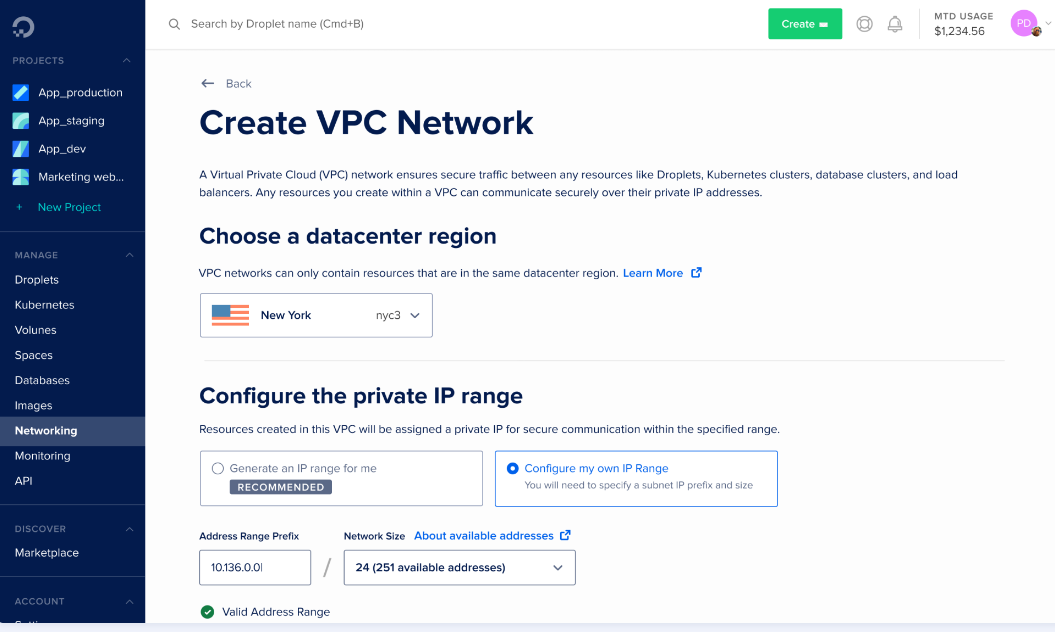
Besides the simplicity, the VPC is a logically isolated network for cloud resources. The client gets more control over the communication of resources in VPC. The company provides an environment that exhibits onsite-premises to the clients.
Many clients want to do customization according to their exact needs. The users can specify the range of IP addresses, which helps to connect more networks. Even the clients can configure firewalls to get more control over incoming and outgoing traffic.
Alibaba Cloud VPC
Alibaba provides the VPC with ease of creation for an isolated network environment. They offer customization of the IP address range and network segmentation.
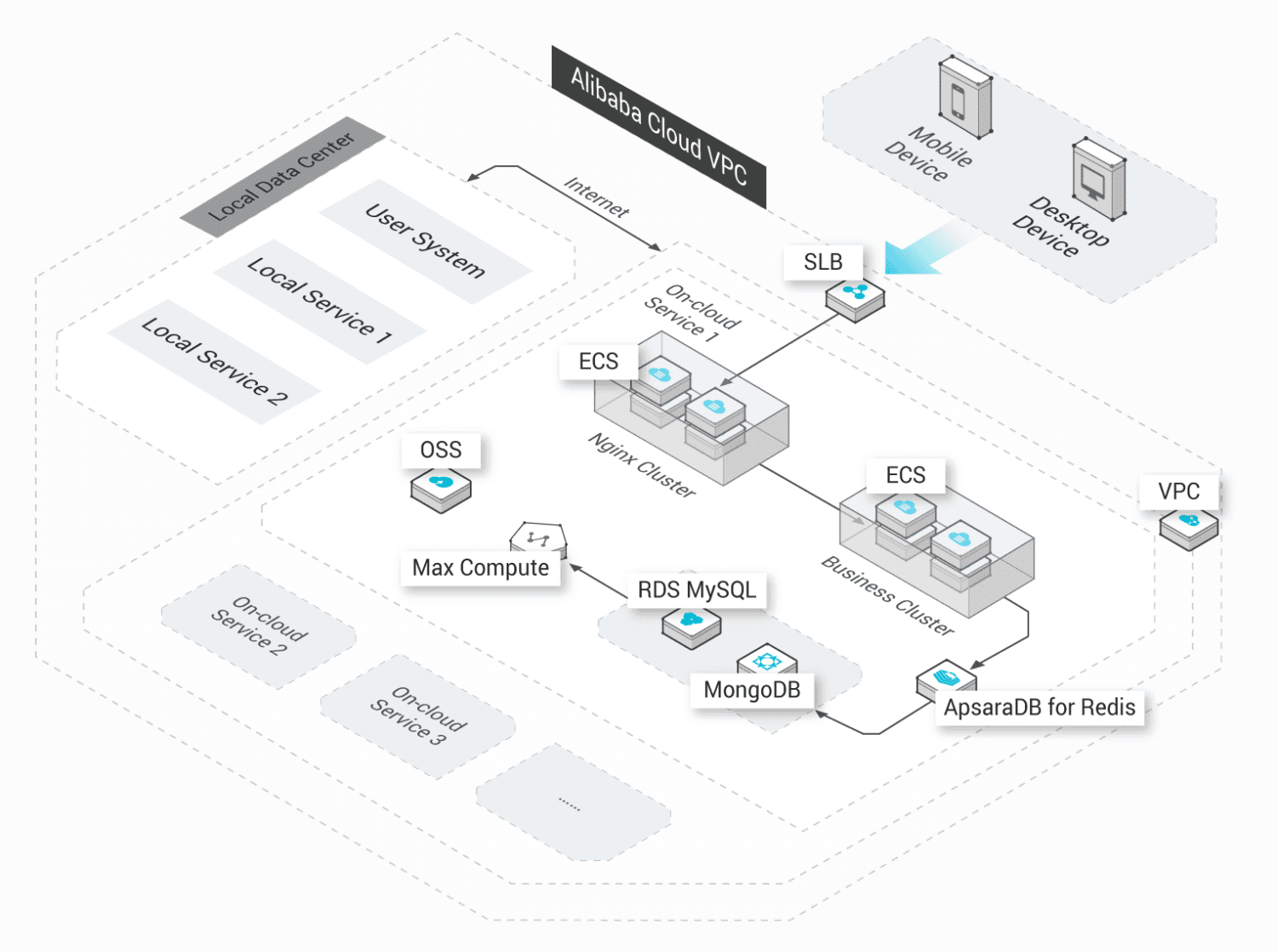
The clients can configure the routing table and gateway.
Benefits
The VPC has an isolated network environment. Their network is flexible with IP address and route table configuration. The logical isolation between different instances of VPC is available at Layer 2.
Alibaba provides a free, fully isolated VPC environment. The VPC is scalable, offering hybrid cloud architecture with multiple products. It is easy to manage various internet portals.
Features
MAC Layer Isolation: Using overlay technology, Alibaba VPC services create virtual networks on physical networks. They use Vxlan for isolation, thus providing complete isolation between various VPCs. As discussed earlier, the isolation is available at Layer 2 (i.e., MAC layer).
Ultimate customizations: The clients can plan and manage the network according to their specific requirements. The customization includes defining the IP address range, route table, gateway, and network segment.
VPC Subnetting: The users can do subnet division. It is possible to use virtual switches to divide the private IP address of VPC into multiple subnets. Moreover, the virtual switch helps to deploy applications and services on demand.
Virtual routers and express connect facility: Configuring virtual routers is possible, which means setting the route rules according to business requirements. The VPC has an express connect facility that helps establish interconnection between different regional VPCs.
HUAWEI Cloud VPC
Huawei’s virtual private cloud provides virtual private networks that help to isolate online resources. The web offers secure communication of cloud resources over the internet and intranet.
Features
The main features of the network include easy connectivity, security, reliability, high-speed bandwidth, and seamless scaling. Let’s discuss very briefly:
Simplicity: It is simple to add elastic container services in the same VPC, whereas ECSs may exist in different zones. Also, it is easier to control communication between VPCs.
Secure and Reliable: Security is available through the isolation of network resources. The traffic between instances and subnets is reliable.
High-Speed Bandwidth: They provide dynamic and static border gateway protocols. Therefore, clients can choose anyone as per requirement.
Seamless Scaling: There is a provision for the hybrid mode that clients can use and connect onsite machines and networks.
Tencent Cloud
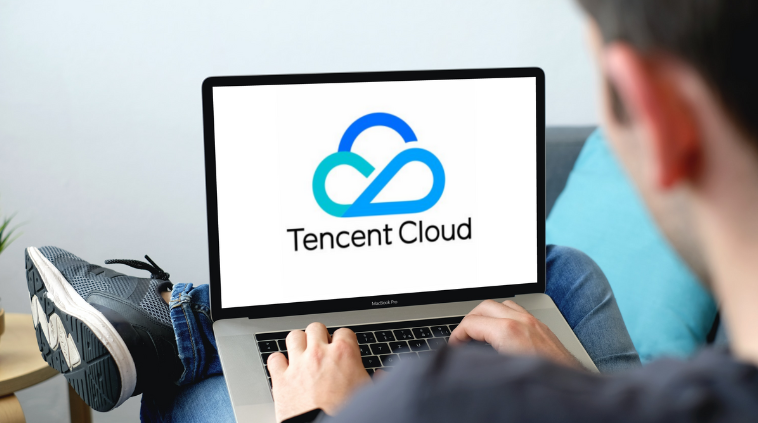
Tencent cloud provides a stable, flexible, and secure private network having the following benefits:
- High Availability
- High-performance Internet
- Diversified Access
- Multi-dimensional Security
- Visual Management
- Elastic Scalability
- Optimal Costs
- Service Integration
Features
Tencent cloud has the following features:
Software-defined network: The client can customize IP address ranges and routing schemes using a dashboard or APIs. It is easy to define multiple subnets. The technical team is available to maintain and optimize the resources.
Elastic internet connection: Tencent’s cloud internet connectivity is flexible with high performance, which includes elastic IP and network address translation gateway. The elastic IP address is public and thus independently available for internet access.
Hybrid Cloud Deployment: The organizations can quickly deploy a hybrid cloud using a public IPsec, which will be encrypted and thus secure. The connection of resources between VPC and onsite servers will be stable and reliable.
Interconnection with Cloud Resources: Both classic and peering connections are available to connect resources between VPC and other clouds. The users can easily connect resources from different clouds in the VPC. PC service is available for cross-account and cross-region interconnection of VPCs.
The connection enables cloud virtual machines and cloud databases to access each other.
Security Control: The client can use access control lists and security groups to access control at the resource level and the port. Therefore, users can grant minimum permissions for better network security.
The access control list is a virtual firewall for better control of inbound and outbound traffic. Thus, it is possible to accept only the required data packets.
Server Space VPC
Server Space provides clients to create their VPC, which has a logically isolated segment within a public network, yet it is a secure, economical, efficient, and scalable solution.
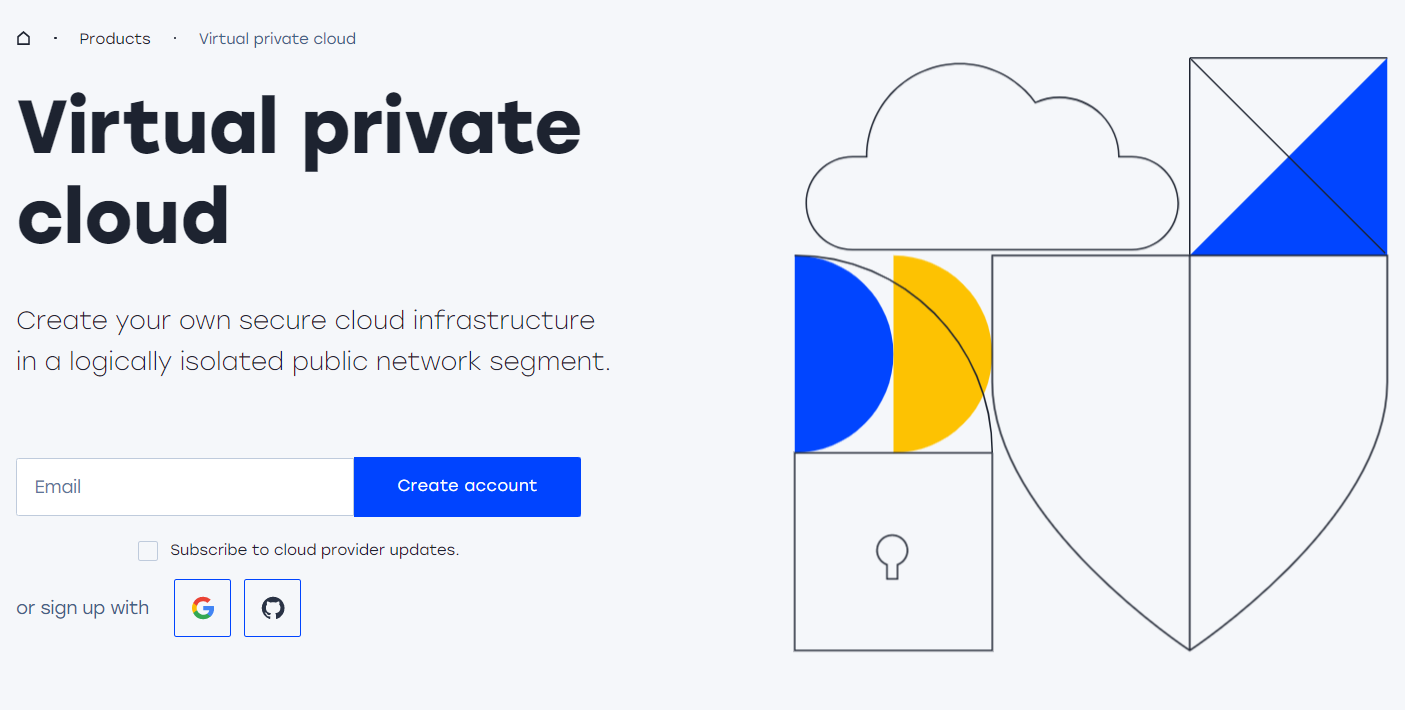
Benefits
The benefits of using Server Space VPC are:
Security Compliance: The client can build a network according to industry regulations. These regulations include payment card industry regulation and system and organization controls.
Total Control: The client has complete control to manage traffic over subnets, where they can filter inbound and outbound access.
Reduced Costs: Server Space offers many free-of-cost services and other services at an economical cost.
Lightning Speed: The company provides virtual machines which work on a high-speed network. The bandwidth speed is around one gig.
Agile Scaling: The VPC can meet business-growing needs. The scalability is no issue; the clients can add/remove the application instances as needed.
Global Locations: The company is widely available. The clients can manage reliable data centers worldwide.
Features
The salient feature of Server Space PVC are:
- scalable infrastructure
- disaster recovery
- protection from cyber attacks
- in line with business goals
- compliance with business strategies
Conclusion
This article discussed virtual private clouds and their benefits. We have outlined the top cloud giants featuring the VPCs.
A good VPC is one that provides easy migration, economical solutions, security, tools support, network definition, standards compliance, etc. Another critical factor is the ease of use, which includes the creation, modification & deletion of subnets.
Each business/ client has their own set of requirements. It is difficult to put one VPC solution as the best. You must check the available features and benefits and compare them with your list of required ones. The best solution is one that fits your needs the most.
Si quiere puede hacernos una donación por el trabajo que hacemos, lo apreciaremos mucho.
Direcciones de Billetera:
- BTC: 14xsuQRtT3Abek4zgDWZxJXs9VRdwxyPUS
- USDT: TQmV9FyrcpeaZMro3M1yeEHnNjv7xKZDNe
- BNB: 0x2fdb9034507b6d505d351a6f59d877040d0edb0f
- DOGE: D5SZesmFQGYVkE5trYYLF8hNPBgXgYcmrx
También puede seguirnos en nuestras Redes sociales para mantenerse al tanto de los últimos post de la web:
- Telegram
Disclaimer: En Cryptoshitcompra.com no nos hacemos responsables de ninguna inversión de ningún visitante, nosotros simplemente damos información sobre Tokens, juegos NFT y criptomonedas, no recomendamos inversiones


